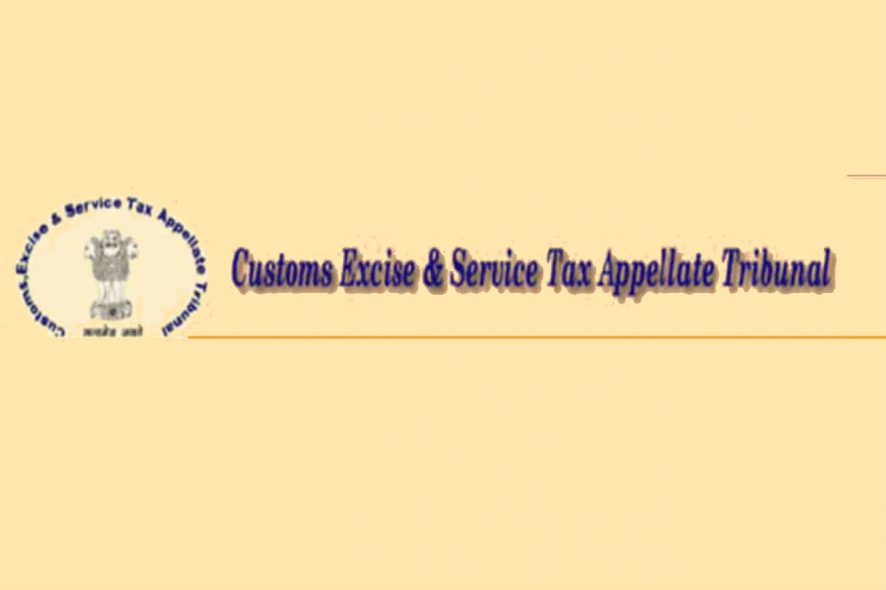Customs, Excise and Services Tax Appellate Tribunal (CESTAT): Rachna Gupta (Judicial Member) allowed an appeal which was filed aggrieved by the order-in-original asking the appellants for recovery of Central Excise Duty amounting to Rs 16,22,501 along with the appropriate interest and proportionate penalty.
The appellant was engaged in the manufacture of organic compound and enzymes. During the course of audit, the Department observed that the appellant had sent 1,41,396.180 litres of chemical for job work under job work Challan for processing. They had received only 90620.290 litres of chemicals. The chemical not received by the appellant i.e. 50775.890 litres was alleged to have the value of Rs. 1,01,15,903/- involving Central Excise duty of Rs.16,22,501/- from their job worker. The said amount of excise duty during the period from 1-3-2003 to 31-3-2005 has accordingly been alleged to have not been paid in contravention to the provisions of Rule 4(5) of CENVAT Credit Rules, 2002.
The appellant submitted that in the manufacture of organic compound into antibiotics and enzymes, the appellant has used Hexa methyl Di-Silioxane (HMDS). After the manufacture of said antibiotic, there remain a by-product namely, (Hexa-Methyl Di-Silixane) HMDSO which contains 75% of HMDS, the raw material for the appellant’s final product and about 25% Toluene. They did not have recovery plant in their factory premises to recover said 75% of HMDS from the said by-product HMDSO. Accordingly, the said product was given to the job worker with an agreement that the yield returnable product would be 90% calculated on 100% basis of HMDS in case the purity is more than 80%. However, if the purity was less than 80%, the yield returnable would be 85%. It was submitted that it is because of that difference in yield returnable that quantity of HMDS received back by the appellant from the job worker was less by about 32-36% of total quantity of HMDSO.
The main issue deduced by the tribunal was that whether Rule 4(5) of CCR was applicable to the given facts and circumstances. The Tribunal perused Rule 4 (5) and explained that:
- where the manufacturer need to sent those inputs for any kind of processing either inputs as such or after partially processing those inputs, then also those inputs shall be eligible for Cenvat Credit to the extent of duty paid on those inputs provided job workers returned the reprocessed inputs within one hundred eighty days, else the manufacturer shall be liable to pay the amount equivalent to the Cenvat Credit attributable to such inputs by debiting the Cenvat Credit or otherwise.
- It also stand, abundantly clear from this provisions that this Rule applies to such inputs which have been sent to the job worker before the manufacturer is able to manufacture its final product.
- This provision applies Thus to a situation where final product cannot be manufactured unless and until the inputs has to undergo such further processing, testing, repairing, reconditioning or any other such treatment which is not available with the manufacturer himself and it has to be got down from the job worker that Rule 4(5) of CCR is invokable. That too in case when Job worker fails to return the processed input within 180 days of receipt thereof.
The Tribunal was of the opinion that there was no denial of the fact that the by-product / waste (HMDSO) which has emerged with the final product (anti-biotic/ organic compound ) of the appellant from the inputs HMDS is sent to the job worker for the reason that this by-product has a potential of releasing the inputs i.e. HMDS by further recovery process as 75% of such HMDS is still contained in the said by-product i.e. HMDSO and this was sufficient to hold that Rule 4(5) of Cenvat Credit Rules is not applicable to the given facts and circumstances. The Tribunal held that what was given to the job worker was the waste which emerged along with final product and not the inputs as such, used by the appellant for manufacturing anti-biotic as a final product. The Tribunal relied on the rulings of Rocket Engineering Corporation Pvt. Ltd. v. CC Pune, 2005 (191) ELT 483 which has been based upon the earlier decision of this Tribunal in the case of Preetam Enterprises v. CCE, 2004 (173) ELT 26. It was held in these decisions that Rule 4(5)(a) of the Cenvat Credit Rules, 2002 does not cover the return of waste and scraps.
The Tribunal further stated that the Commissioner (Appeals) had rejected the appeal solely on the ground that Rule 4(5) does not differentiate between product and by-product however findings are apparently wrong on the face of it.
The Tribunal allowed the appeal and set aside the order-in-original canceling the recovery of Central Excise duty along with interest and penalty.[Dalas Biotech Ltd. v. Commr. Of CE & CGST, 2021 SCC OnLine CESTAT 2523, decided on 03-08-2021]
Suchita Shukla, Editorial Assistant has reported this brief.
Counsel appearing for the Appellant: Ms Jwaria Kainath
Authorised Representative appearing for the Department: Shri Yashbir Singh






